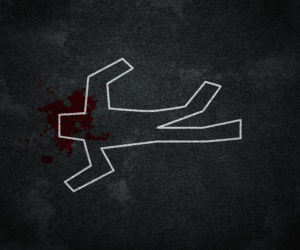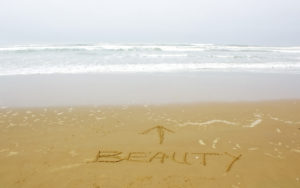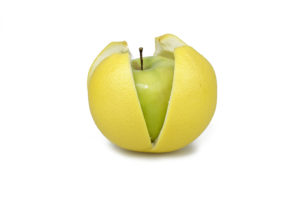The time that this must have taken and the artistry. I would never be able to take a bite! I would never get any work done but instead would spend my day watching my cake.
 Publetariat
Publetariat
When Worlds Collide
When worlds collide you get great stories as explained in this beautifully written post by .
When Worlds Collide
 Have you ever felt out of place? I’m sure. We all have. Meeting the new in-laws. An interfaith church service. Asking the price of a necklace at Tiffany’s. The ER. CIA headquarters in Langley. Strange environments where people are different.
Have you ever felt out of place? I’m sure. We all have. Meeting the new in-laws. An interfaith church service. Asking the price of a necklace at Tiffany’s. The ER. CIA headquarters in Langley. Strange environments where people are different.
One summer day commuting to work on my bike, I stopped at Sander’s Bakery on Lee Avenue in the Brooklyn neighborhood of South Williamsburg. A bakery is a bakery, right? Well, no. Sander’s is in the heart of Brooklyn’s vast Chasidishe, ultra-orthodox Jewish community. The shop was filled with men in long sideburns wearing black coats, Tzizit vests and beaver hats. Women wore wigs, calf length skirts and sturdy shoes. All spoke Yiddish. The shelves were brimming with challah, strudel, rugelach, kippelech, sufganiyot, Napoleon cake and cookies.
In my jeans, black tee and bike helmet, I stood out. Customers avoided my eyes. I am goyim. A non-Jew. An outsider, suspicious, not unwelcome but not welcome either. Cyclists have been attacked in South Williamsburg. To some, I would be less than human. Some, I knew, might believe that I literally lack a soul.
Read the full post on Writer UnBoxed.
Time is such a funny thing
Stuff like this blows my mind. This is early film from 1929 that interviews people born in the early to mid 1800. They interview people who fought in the civil war.
How Steven Spielberg Handles his Villains
It is all about restraint, whether you are a writing a scary villain or sexy scene. Some things are better left to the imagination or hinted at – after all our minds are great at creating and filling in the details.
How Steven Spielberg Handles his Villains
By Steven Pressfield
 Steven Spielberg loves to tease us with his villains.
Steven Spielberg loves to tease us with his villains.
He shows them only indirectly.
In the audience we see the effects of the Bad Guys’ actions, but we rarely see the malefactors themselves.
This is tremendously powerful because it makes us imagine what the forces of evil look like, and that’s always scarier than actually seeing them in blinding daylight.
Remember the scene in Jaws with the three yellow barrels? Our heroes in their boat (Richard Dreyfuss, Roy Scheider, and Robert Shaw) harpoon the shark with cables linked to three huge yellow air-tank-like barrels. The barrels float on the ocean surface, enabling our hunters (and us) to see the shark’s movements from the boat even when the finned menace is submerged.
The great cinematic moment is when the three barrels go churning across the surface at high speed toward the boat, then dive under and come up on the other side.
We never see the shark.
But wow, how we imagine him.
Read the full post on Steven Pressfield!
Scheduling and Time Management by Alyson McLayne
Who doesn’t need help managing their time. Anyone who can live and thrive while wrangling five year-old twin boys deserves a medal, never mind a listen too. So with that I invite you to read this time management post by Alyson McLayne.
Scheduling and Time Management by Alyson McLayne
Ever wonder how you’re going to get everything done? Let Alyson McLayne show you how she seizes the day!

With January just ended, I realize I haven’t set any goals for the year. And truthfully, as busy as I am, I can’t help but wonder What’s the point? I already have goals for this year in the form of deadlines: 3 books to complete, 12 newsletters to craft, 25+ blogs to write, and the world to wow on social media—not to mention conferences to attend and edits coming out of my ears.
Maybe, like me, you’ve reached the point where you no longer sit down and write a list of New Year’s Resolutions—only to fail come December 31st. Instead, perhaps you choose an inspiring word that becomes your mantra, or theme, for the year. One year I chose the word “success”, and last year a friend of mine chose the word “courage”. This year she has a catchphrase: “Seize the moment”.
These are all good ideas. I can only imagine that if we courageously seized the moment whenever we could during 2018 it would lead to great success!
But I feel like those kinds of words and the sentiment behind them are too ephemeral for me this year. I need something with more grit, more heft, to get me through the challenges I face. Like many of you, in addition to writing, I’m also busy on the home front—I have twin five-year-olds, a puppy, aging and sick parents, and a husband who works long hours.
Read the full post at Romance University!
Unbelievably Strange Planets in Space
Here is some inspiration for all the science fiction writers out there! Or people who just like cool science like me!
How to Write a Synopsis—Without Turning Homicidal
Having a great synopsis is so important because that is usually what will turn a prospective reader into a purchaser. And I beg you please, have a one or two sentence summary that can be used to effectively advertise your book!
How to Write a Synopsis—Without Turning Homicidal
by Sarah (Sally) Hamer @SarahSallyHamer
Part One
 One of the big questions I hear in my classes is, “How do I write a synopsis?”
One of the big questions I hear in my classes is, “How do I write a synopsis?”
Good question. Here’s the best answer I can give you:
Buy Gracie O’Neil’s book, How to Write a Synopsis—WithoutTurning Homicidal.
Gracie is one of our ‘down under’ folks, living in New Zealand down the road from the Hobbits. She’s funny, gracious, and brilliant, all at the same time. And, her book on synopses not only helps my students, it helps me to explain how story structure works.
She says “The first key to a killer synopsis is to find your story’s centre. Its soul. Its beating heart.”
How?
Tell your story in 50 words or less.
I can hear the groans from here!
It’s really not that hard. Really.
Read the full post at The Write Conversation!
Becoming a “Real” Writer
This isn’t about getting a contract or a million Amazon followers, but how to express your “real” self through your writing. Finding your unique voice and staying true to it. I really enjoyed reading it and I hope you do too.
Becoming a “Real” Writer
 I love to go hear other authors speak. What a kick that Pulitzer Prize winner Elizabeth Strout sounds like my favorite quirky aunt, or that bestselling author Margot Livesey’s lush prose begins with characters who, like mine, nod and shrug their way through her first drafts.
I love to go hear other authors speak. What a kick that Pulitzer Prize winner Elizabeth Strout sounds like my favorite quirky aunt, or that bestselling author Margot Livesey’s lush prose begins with characters who, like mine, nod and shrug their way through her first drafts.
I’ve walked away from dozens of such interactions thinking, “She was just so real.”
Now, isn’t that a funny thing to say about someone who makes things up for a living?
Or perhaps writing engaging fiction is one of the most emotionally truthful pursuits in which we will ever engage. A novelist can spend years crafting a story that will illustrate an emotional truth. Why? Because the point she is making is vital to her worldview. That’s pretty darned personal—it’s laid bare.
Fear of such exposure is why reaching for emotional honesty can be a significant source of writer’s block. Accomplished writers grow in authenticity the same way we all must: one step at a time.
Read the full post at Writers In The Storm!
The History Of the World: Every Year
This is really cool but I also thought it might be useful for writing research or inspiration!
The Words That Changed Your Life: Discovering What Made You a Writer
I have always loved stories, making them up or reading them. My beginnings as an author started in first grade with Enormous the Frog. I can’t imaging not be creative this way. How about you? What made you want to write?
The Words That Changed Your Life: Discovering What Made You a Writer
by K.M. Weiland
 For me, it’s almost become a cliché answer: “I write because stories have always been my language. I write because my very first memory is telling myself a story.”
For me, it’s almost become a cliché answer: “I write because stories have always been my language. I write because my very first memory is telling myself a story.”
“Why do you write?” and “What made you a writer?” are two questions I’m ubiquitously asked in interviews. I can respond to those questions in my sleep. I don’t even think about their answers anymore.
And that, as I’m now realizing, is a shame.
As artists, our early influences were more than just the first domino in our journeys. They were more than “just” formative. They were the experiences that shaped us into the people and writers we have become. Sometimes these influences are conscious: some writers can recall a specific book or movie that made them say, “I want to be a writer.” But even in these situations, the subconscious impact is often far deeper and more telling.
Read the full post on Helping Writers Become Authors!
Is Writing Being Devalued by Giveaways and Cheap Ebooks?
This is something I have been thinking about a lot lately. I LOVE to read. And while I don’t have as much reading time as I wish, I do read fast and manage to do my part. I still can’t get through my to-be-read pile. Because of one of my day jobs I am constantly being exposed to a lot of titles. Some I end up deleting after a chapter or even a paragraph because there are so many good stories out there, why waste time on stories that are not going to thrill me. But having this large amount of decent content means I never get to authors I love and would have to pay more for their titles. On the flip side, I am currently reading a series that I got the first story for free in one of those anthologies and the story was so good, I had to buy the whole series right there because I was going to die if I didn’t know what happened next! What are your thoughts?
Is Writing Being Devalued by Giveaways and Cheap Ebooks?
by Jane Friedman
Increasingly, at writing conferences and in the mainstream media, I observe growing unrest surrounding the proliferation of free and cheap literature, particularly ebooks. The reasons for sharp discounts and giveaways are legion (and some reasons are better than others), but regardless of the reason, I see greater peer pressure on and shaming of those who are seen to “devalue” literature in our culture.
Whole books have been written on this topic, as it’s an anxiety affecting creators in diverse fields. Some describe the phenomenon from a neutral and even historical perspective (“how have we ended up here?”), some are more activist in their approach (“fight and resist”), and still others are pragmatic (“here’s how to play with the hand you’ve been dealt”).
Read the full story on Jane Friedman!
Boston Accent Trailer – Late Night with Seth Meyers
See it isn’t just me! I could never watch Murder She Wrote cause Tom Bosley’s accent drove me bonkers! I know, I am aging myself. Sigh.
If Alexa was Southern
It should say “Bless their hearts”!
Benefits of being a hybrid author
There are pros and cons to traditional publishing vs. indie or self-publishing. Why not do both? Pub Crawl has started an excellent series on just this question!
Benefits of being a hybrid author: When to self-publish and when to go the traditional route? Part One: Traditional Publishing
by
 Julie here! Today, I have Falguni Kothari as my guest on the blog. Falguni is a successful “hybrid author,” with both traditional and self-publishing experience. Her new book, MY LAST LOVE STORY (Harlequin/Graydon House), comes out tomorrow, January 23, 2018. This is Part One of a two part post, so be sure to come back tomorrow for Part Two. Take it away, Falguni!
Julie here! Today, I have Falguni Kothari as my guest on the blog. Falguni is a successful “hybrid author,” with both traditional and self-publishing experience. Her new book, MY LAST LOVE STORY (Harlequin/Graydon House), comes out tomorrow, January 23, 2018. This is Part One of a two part post, so be sure to come back tomorrow for Part Two. Take it away, Falguni!
Never keep all your eggs in one basket. The adage has become more of a philosophy I’ve adopted to navigate various aspects of my life, including my publishing career. So, what or who is a hybrid author? A writer who avails herself of all the publishing opportunities available to her, such as traditional, self and paid publishing, in various combinations, is a hybrid author. She is not turned off by the ever-shifting landscape of the publishing industry, but rather, she slams open doors for herself and charges across the altering, often turbulent publishing landscape, very much a captain of her own ship.
Read the full post on Pub Crawl!
